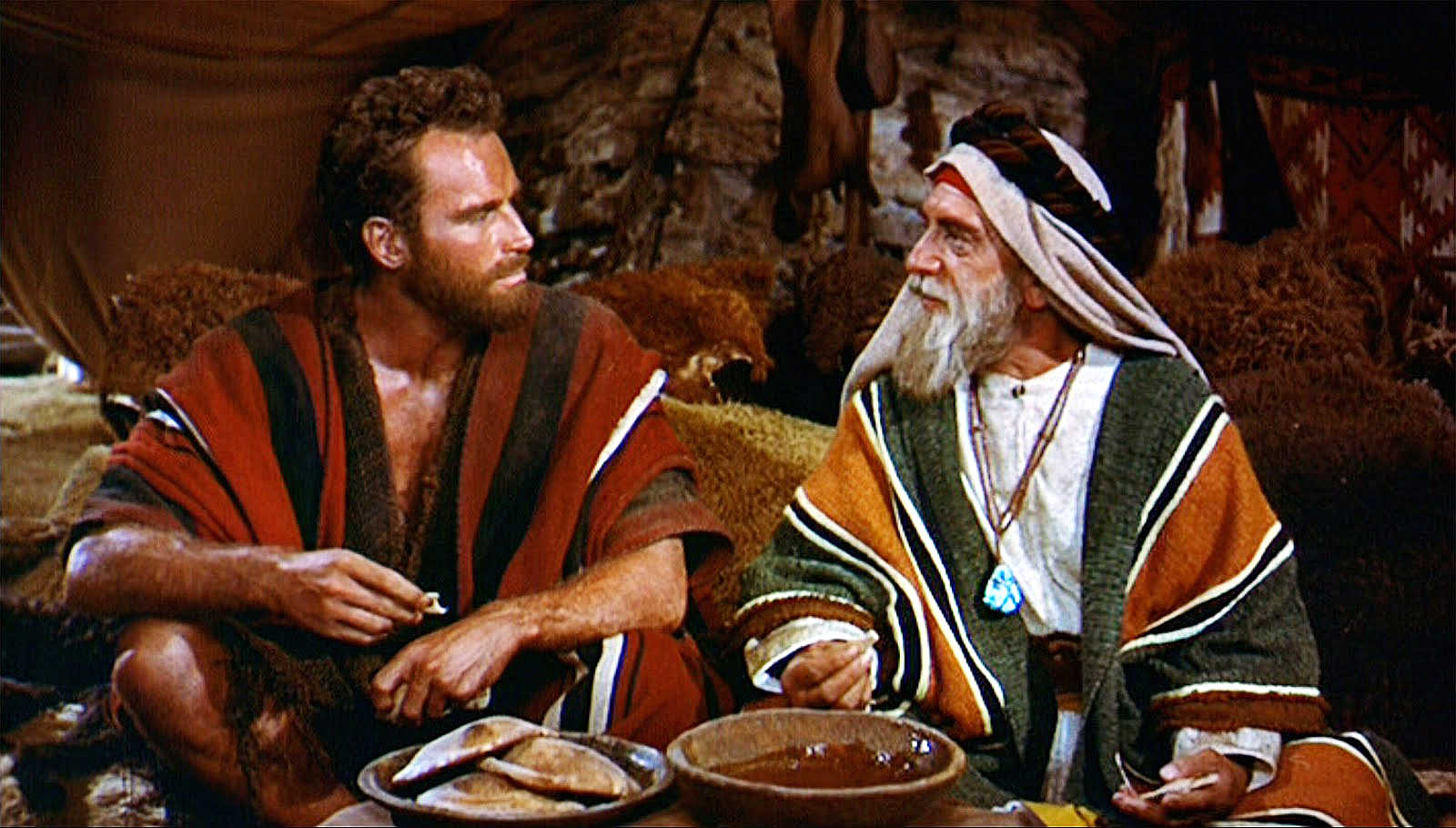Who Is the God that Jethro the Priest of Midian Priest of? By jak2010, 5th Jun 2011
Who Is the God that Jethro the Priest of Midian Priest of? By jak2010, 5th Jun 2011

http://www.family.wikinut.com/Who-Is-the-God-that-Jethro-the-Priest-of-Midian-Priest-of/10430s9w/
The mystery remains unsolved: Who is the God Jethro the brother in law of Moses was priest to? This article attempts to answer this question using the biblical texts of the Old Testament as evidence.
Revelation of Yahweh to Moses
The greatest mystery of Yahwism as the religion of the Israelites began at the burning bush encounter by Moses (Exodus 3). Yahweh introduced Himself as the God of Abraham, Isaac and Jacob, the patriarchs of the Israelites. It clearly showed Yahweh was a patron deity of these patriarchs. But who is then that Jethro, the priest from Midan? Whose priest was he? Was he a pagan priest? It raises a lot of question as to who really was Jethro the priest and who was his God?
Jethro is referred as a priest from Midan already in Ex. 2:16 and in Ex. 3:13:1 before Moses encountered Yahweh in the burning bush. Moses’ meeting of his wife at the well resembled that of Abraham’s servants who came to Abraham’s own relatives to find a woman for his son, Isaac. God led the servant to choose Rebecca at the well. And it also was reminiscences of Jacob from his avenging brother who was met by the two daughters of his uncle, Laben. Moses was similarly met by seven daughters of a priest, by the name of Jethro.
Several names were used for Jethro. First, Reuel is in Exodus 2:18; then Jethro in Exodus 3:1. In the previous chapter Moses’ father-in-law was called Reuel, while here he is referred to as Jethro and in Numbers 10:29 as Hobab (see Judg 4:11). The difficulty can be resolved once the ambiguity of the terminology is recognized. The term designating male in-laws is non specific. The term referred to a woman’s male relatives and could be used for her father, brother or even grandfather. Most solutions take account of this. Perhaps Reuel is the grandfather head of the clan, Jethro is the father of Zipporah and technically the father-in-law of Moses, and Hobab is the brother-in-law of Moses, Jethro’s son. Alternatively, Jethro and Hobab could both be brothers-in-law, and Reuel the father.
He is a Midanite. The Medinites consisted of five families, linked to Abraham through Midian, son of the concubine Keturah. Abraham sent them away, with all his other sons by concubines, into the East (Gen. 25:1-6). Thus the Midianites are found inhabiting desert borders in Transjordan from Moab down past Edom. They were desert-dwellers associated with Ishmaelites and Medanites (Gn. 37:28, 36) when Joseph was sold into Egypt; for the partial overlap of these three terms, cf. Jdg. 8:24, where the Midianites defeated by Gideon are said to have been Ishmaelites because of their use of gold ear or nose-rings. Moses had a Midianite wife, Zipporah, father-in-law, Jethro/Reuel (Ex. 2:21; 3:1, etc.), and brother-in-law, Hobab (Nu. 10:29; Jdg. 4:11). As a man of the desert, Hobab was asked by Moses to guide Israel in travelling through the steppe (or ‘wilderness’) (Nu. 10:29-32).
Later, in the plains of Moab, the chiefs of Midian and Moab combined in hiring Balaam to curse Israel (Nu. 22ff.) and their people led Israel into idolatry and immorality (Nu. 25), and so had to be vanquished (Nu. 25:16-18; 31). The five princes of Midian were confederates of the Amorite king Sihon (Jos. 13:21). In the time of the judges, through Gideon and his puny band (Jdg. 6-8; 9:17), God delivered Israel from the scourge of camel-riding Midianites, Amalekites and other ‘children of the east’, an event remembered by psalmist and prophet (Ps. 83:9; Is. 9:4; 10:26). This is at present the earliest-known reference to full-scale use of camels in warfare.
The book of Exodus mentions Yahweh was unknown to Moses and his followers. Who then was Yahweh? Jethro as a priest, but is so silent on whose God did he serve as priest. To answer this question, another question needs to be asked as the proximity of the name Jethro, the priest and Yahweh the God appear in the space of few verses apart. Who was Yahweh? Was he the god of the Midianites? The local deity of the sacred mountain? Some parts of Genesis give the impression that Yahweh was already known and worshipped under that name by the Amorite patriarchs. The Moses tradition, however, makes it clear that the name and to a large extent the role of Yahweh was unknown to Moses and his followers.
Who then was Yahweh? Scholars attempted to determine the meaning and origin of the name Yahweh are numerous. One plausible theory states that Yahweh was a title of El from the cult of Midan, but that in time the title became detached and accepted as a separate name. In any case, Yahweh is clearly identified with El, the experience of Yahweh as a dynamic deity once associated with Moses ‘ancestors, became the impetus for Moses radical protest again Pharaoh.
It is now clear that Jethro was the priest of deity El, whose name was isolated and new name, taken up as Yahweh by Moses. Jethro is not a pagan priest, but the priest of the deity whose ancestors of Moses worshipped. This patron deity is now revealed to Moses as Yahweh, He is who He is, He was who he was and He is who He is to be. This solves the problem of the patriarchs who worshipped their God in different names with prefix El, for example, El Shaddai, El Ellyon and El Roi is amplified with new name Yahweh who exercised his greatness in the might work of the Exodus. Jethro is the priest of Yahweh who is the God of the universe.






Interact with us using Facebook